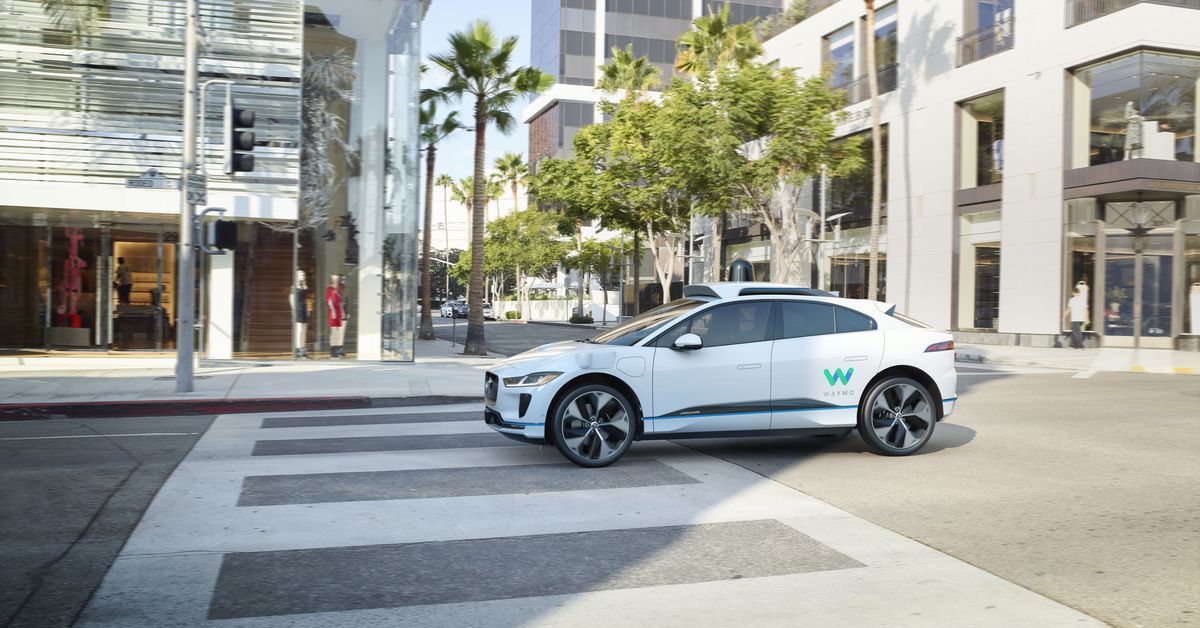NASA is making a plane that will go from NYC to LA in 2 hours.
Category: transportation – Page 512
Elon Musk and Peter Diamandis
Elon Reeve Musk is a South African-born Canadian-American business magnate, engineer, inventor and investor. He is the CEO and CTO of SpaceX, CEO and product architect of Tesla Motors, and chairman of SolarCity as well as co-chairman of OpenAI.
He is the founder of SpaceX and a co-founder of Zip2, PayPal, and Tesla Motors. He has also envisioned a conceptual high-speed transportation system known as the Hyperloop and has proposed a VTOL supersonic jet aircraft with electric fan propulsion. He is the wealthiest person in Los Angeles.
Peter Diamandis ► https://goo.gl/Q0yk81
Peter H. Diamandis is a Greek–American engineer, physician, and entrepreneur best known for being the founder and chairman of the X Prize Foundation, the co-founder and executive chairman of Singularity University and the co-author of the New York Times bestsellers Abundance: The Future Is Better Than You Think and BOLD: How to Go Big, Create Wealth, and Impact the World. He is also the former CEO and co-founder of the Zero Gravity Corporation, the co-founder and vice chairman of Space Adventures Ltd., the founder and chairman of the Rocket Racing League, the co-founder of the International Space University, the co-founder of Planetary Resources, founder of Students for the Exploration and Development of Space, and vice-chairman & co-founder of Human Longevity, Inc.
In March 2014, Diamandis co-founded Human Longevity Inc. (HLI), a genomics and cell therapy-based diagnostic and therapeutic company focused on extending the healthy human lifespan, with Craig Venter and Robert Hariri.
——–

From the quantum level to the car battery
New developments require new materials. Until recently, these have been developed mostly by tedious experiments in the laboratory. Researchers at the Fraunhofer Institute for Algorithms and Scientific Computing SCAI in Sankt Augustin are now significantly shortening this time-consuming and cost-intensive process with their “Virtual Material Design” approach and the specially developed Tremolo-X software. By combining multi-scale models, data analysis and machine learning, it is possible to develop improved materials much more quickly. At the Hanover Trade Fair from April 23 to 27, 2018, Fraunhofer will be demonstrating how the virtual material design of the future looks.
In almost every industry, new materials are needed for new developments. Let’s take the automotive industry: while an automobile used to consist of just a handful of materials, modern cars are assembled from thousands of different materials – and demand is increasing. Whether it’s making a car lighter, getting better fuel economy or developing electric motor batteries, every new development requires finding or developing the material that has exactly the right properties. The search for the right material has often been like a guessing game, though. The candidates have usually been selected from huge material databases and then tested. Although these databases provide insight into specific performance characteristics, they usually do not go far enough into depth to allow meaningful judgments about whether a material has exactly the desired properties. To find that out, numerous laboratory tests have to be performed.

Storm hunter launched to International Space Station
ESA’s observatory to monitor electrical discharges in the upper atmosphere is on its way to the International Space Station. The Atmosphere-Space Interactions Monitor is riding in the Dragon cargo vehicle that lifted off at 20:30 GMT (16:40 local time) from Kennedy Space Center in Florida, USA.
A suite of instruments will search for high-altitude electrical discharges associated with stormy weather conditions. It is the first time that such a set of sensitive cameras, light sensors and X- and gamma-ray detectors are flying together to study the inner anatomy of luminous phenomena in Earth’s upper atmosphere and the link with bursts of high-energy radiation.
ASIM mounted on Columbus.

Lockheed Martin Receives Patent For ‘World Changing’ Fusion Reactor
CBS Local — Lockheed Martin has reportedly been working on a revolutionary new type of reactor that can power anything from cities to aircraft carriers.
The Maryland-based defense contractor recently received a patent for the compact fusion reactor (CFR) after filing plans for the device in 2014. According to reports, one generator would be as small as a shipping container but produce the energy to power 80,000 homes or one of the U.S. Navy’s Nimitz-class carriers.
Lockheed’s advanced projects division, Skunk Works, has reportedly been working on the futuristic power source since 2014 and claimed at the time that a CFR could be ready for production by 2019.
OFFSET “Sprinters” to Pursue State-of-the-art Solutions for Second Swarm Sprint
DARPA’s OFFensive Swarm-Enabled Tactics (OFFSET) program envisions future small-unit infantry forces using small unmanned aircraft systems (UASs) and/or small unmanned ground systems (UGSs) in swarms of 250 robots or more to accomplish diverse missions in complex urban environments. By leveraging and combining emerging technologies in swarm autonomy and human-swarm teaming, the program seeks to enable rapid development and deployment of breakthrough swarm capabilities.
To continue the rapid pace and further advance the technology development of OFFSET, DARPA is soliciting proposals for the second “swarm sprint.” Each of the five core “sprints” focuses on one of the key thrust areas: Swarm Tactics, Swarm Autonomy, Human-Swarm Team, Virtual Environment, and Physical Testbed. This second group of “Swarm Sprinters” will have the opportunity to work with one or both of the OFFSET Swarm Systems Integrator teams to develop and assess tactics as well as algorithms to enhance autonomy.

Alphabet will operate a fleet of 20,000 Jaguar cars for its driverless ride-hail service by 2022
Alphabet’s self-driving arm Waymo is introducing a new vehicle into its fleet of driverless rides, an all-electric car produced by Jaguar Land Rover.
Waymo unveiled the new vehicle, called the Jaguar I-Pace, at a press event in New York City on Tuesday and said it expected to begin production on the cars equipped with its technology in 2020. In the first two years, the companies expect to manufacture 20,000 cars.
The vehicles will first be available in a ride-hail service in Phoenix, Ariz., where the company will begin testing prototypes this year. Waymo currently has a fleet of driverless Chrysler Pacifica vans as part of its ongoing agreement with Fiat Chrysler.

Clean power is shaking up the global geopolitics of energy
This special report will look at the energy transition from the perspective of America, the EU and China as well as petrostates such as Russia and Saudi Arabia. It will pinpoint winners and losers. It will argue that America is at risk of squandering an early lead, obtained by using natural gas and renewables to slash emissions, promoting clean technology and helping pioneer the Paris agreement. China is catching up fast. Saudi Arabia and Russia are in most obvious peril.
TO ENTER TAFT, two hours north of Los Angeles, you drive along the “Petroleum Highway”, past miles of billboards advertising Jesus. God’s country is also oil country. Spread over the sagebrush hills surrounding the town are thousands of steel pumpjacks (pictured), contraptions that suck oil out of the ground. They look like a herd of dinosaurs. Some Californians would describe the oil industry in the same way.
The oil produced at Taft is not produced by hydraulic fracturing, or fracking, as much of it is in Texas and North Dakota. It is so heavy it needs to be steamed out of the ground, in a process known locally as “huff and puff”. Yet Kern County, with Taft on its western edge, produces 144m barrels of oil a year, the second highest output of any county in America. Fred Holmes, a third-generation oilman and patron of the West Kern Oil Museum, says he is proud of the heritage, however much it irks local drivers of electric Tesla cars that the Golden State has such a carbon-heavy underbelly. “Oil is renewable energy. It just takes longer to renew,” he quips. He has built a giant wooden derrick at the museum to celebrate it.
Get our daily newsletter
Upgrade your inbox and get our Daily Dispatch and Editor’s Picks.
Next Generation Launcher considered under U.S. Air Force’s EELV program
The U.S. Air Force is considering Orbital ATK’s Next Generation Launcher under its Evolved Expendable Launch Vehicle program. What does this new launch vehicle look like? How tall will it be? What will it capable of? To find the answers to these questions, SpaceFlight Insider spoke with one of the officials responsible for the new booster’s development.
SpaceFlight Insider spoke to Orbital ATK’s Mark Pieczynski, the Dulles, Virginia-based company’s vice-president of Business Development for Orbital ATK’s Flight Systems Group.
SFI: Thanks for taking the time to talk to us about NGL’s inclusion in the USAF’s Evolved Expendable Vehicle program. Can you provide our readers with a bit of background about you company’s latest offering.
